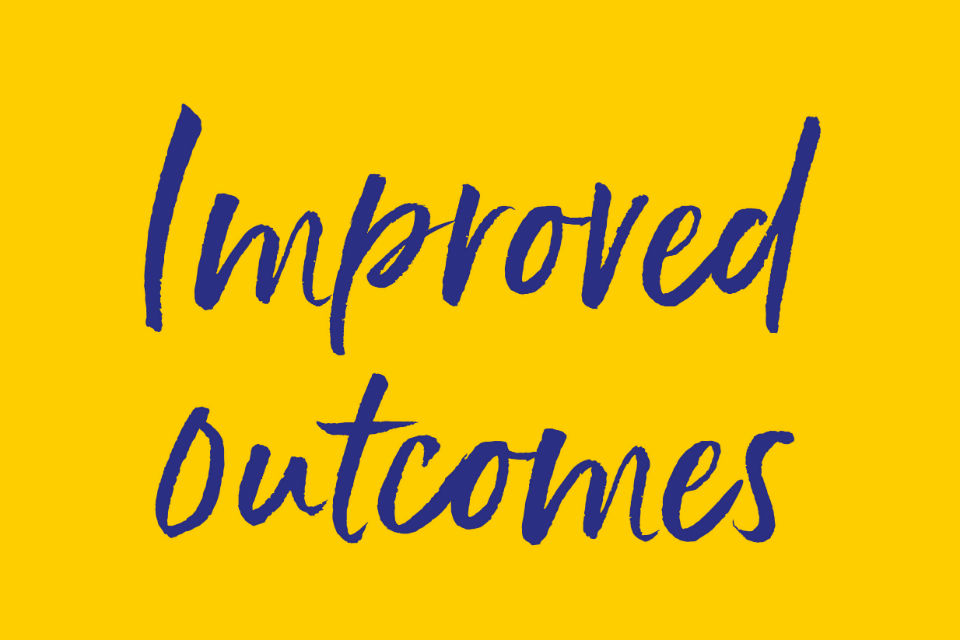
One of the great privileges of my job is the opportunity to observe the fantastic work being done across the different departments making up the Civil Service. The successes of the services we provide can have a profound impact on both the well-being of an individual citizen and the prosperity and security of the whole country.
A common theme in many of the success stories is getting the right commercial contracts in place. This is about understanding what the policy goal is, thinking through the commercial activity needed to support it, procuring the right services, and then managing those contracts effectively to get the best out of them.
There is a risk that we only focus on procurement, and downplay the impact of what often are actually the more important elements. The way we do this can make the difference between the success and failure of vital services or major infrastructure projects. That is why strengthening our commercial capability remains one of the top three management priorities for the Civil Service.
We have made good progress. People standards have been put in place for senior commercial staff, providing a clear picture of the capabilities we are looking for in the Civil Service. The Government Commercial Organisation has been established to retain and recruit some of the country’s most impressive senior commercial talent. Consistent commercial operating standards are being applied across government, and departments have measured themselves against these standards and are now sharing good practice in order to improve.
Effective management of our commercial activities is already contributing significantly to efficiency savings during a period of financial constraint. But good commercial practice is about much more than financial savings: it is about improving the delivery of services.
These three examples show what can be done:
Access to justice
Access to justice is a vital element of what makes us function as a society. In a complex courts system the Ministry of Justice works to ensure access to justice for all, including for those who can’t speak English. In UK courts up to 750 cases each day require an interpreter. Last year we started the process of retendering the contract for that service, mindful that the previous contract handover resulted in a dramatic dip in performance.
In November 2016, we awarded the contract to a new supplier. Through clear performance targets, close management of the contract and effective working with the new supplier, we have seen consistently strong performance during this transition - currently running at over 95% of interpreters arriving on time. This means hundreds of court cases are proceeding every day without the delays that would have been caused by dips in performance experienced with the previous contractor.
Worldwide aviation and refuelling services
Our global position, whether in relation to defence or trade, is also supported by good commercial arrangements. The provision of worldwide aviation and refuelling services is essential for the RAF. We are looking to develop an improved approach to fuelling anywhere in the world, covering 95% of the most used airfields worldwide for fuel ‘pick up’ to keep the RAF flying. This needs substantial commercial support to get the right contracts in place.
'Government-to-government' arrangement

The Department for International Trade negotiated a ‘government to government’ arrangement with Peru to support the design and delivery of the Pan-American games in 2019, unlocking up to £600 million in export opportunities for UK companies. The commercial team played a pivotal role in constructing the commercial deal and negotiating the terms of this novel arrangement (before this, such government-to-government agreements had only been used in the defence arena).
Building Civil Service capability
There are many more examples of high-quality commercial support I could cite, enabling the smooth running of our courts, schools, and hospitals; the defence of the realm; or delivery of welfare payments and support for people to find work. We are making progress in improving the capability of specialist commercial staff, based in government departments, who make up the Government Commercial Function.
In March, the National Audit Office reported that the function had “made rapid progress in identifying departments' specialist skills needs, introducing rigorous skills assessment, and moving towards greater pay flexibility for scarce skills”.
Ensuring the best value for the £44 billion spent on commercial contracts each year is a role for non-commercial staff as well as commercial specialists. In March, we announced plans to expand the work to build commercial capability across the Civil Service.
One of the areas that we will focus on is building the capability of civil servants who manage major commercial contracts but are not commercial specialists. These civil servants may come from a policy or operational background, or may be part of another professional function other than commercial. Whatever their background, the day-to-day decisions they make have a big impact on the effectiveness of these contracts, and their costs. Indeed, it is believed that good contract management can result in savings of up to 10% on the total value of a contract.
 Departments will shortly begin to identify those who manage their most significant contracts and then work with the Government Chief Commercial Officer to assess the training and development support that they need. They will be given the training they need to achieve success through an accreditation process.
Departments will shortly begin to identify those who manage their most significant contracts and then work with the Government Chief Commercial Officer to assess the training and development support that they need. They will be given the training they need to achieve success through an accreditation process.
Good contract management has a central role to play in creating A Brilliant Civil Service that delivers for the nation. That is why it is so important.
Follow Sir Jeremy on Twitter: @HeadUKCivServ
